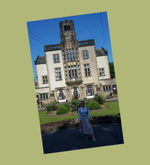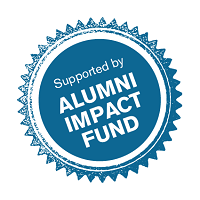Emily Walsh, MA Philosophy

Conference impact
“The activities have prepared me for my PhD by enabling me to discuss PhDs with lecturers and fellow students. It has also enabled me to develop my presentation skills, which is beneficial as this is a key skill which is required in order to be a successful academic.”
Overview
My first opportunity was to present my paper on the issue of dementia and domestic violence at the University of Leeds Compassion and Cruelty conference. I had to make my paper accessible to a non-philosophy audience as those who attended were mainly from a classics background. Opportunities such as giving papers at conferences are vital for me as I wish to pursue a career in academia, which would require I have the requisite skills to present a paper to a target audience.
The second opportunity was to attend a two-day conference where Professor Roger Crisp, a philosopher whose work I highly admire, was presenting. Whilst there I was able to engage with fellow philosophy students - the majority of whom were current PhDs. This experience was invaluable, as these students told me how I should go about finding funding for my PhD and gave excellent general advice on the process of becoming an academic. Likewise, engaging with key philosophical figures at the event enabled me to broaden my own ideas and knowledge of the material being discussed.
What were your main achievements?
Firstly, a great achievement was having my paper selected for the conference at Leeds, as it is usually PhD students who get an opportunity like that. Secondly, a great achievement at Leeds was having Dr Marta Cobb comment on how accessible and enjoyable she found my paper on dementia. This opened up a discussion with her which I thoroughly benefited from on the day. Finally, at the Joint Session, my greatest achievement was simply engaging with philosophers such as Roger Crisp on discussions about ethics. It was a rare and wonderful opportunity for the discussion aspect alone.
What did you enjoy the most?
One of the aspects I enjoyed most about both opportunities was that both allowed me to engage with other PhD students in my field. As I am applying for PhDs in the USA next year, both opportunities enabled me to hear what motivated PhD students to choose their place of study, which was really useful information for me at this moment in my academic career. Likewise, I thoroughly enjoyed participating in the wider discussion about ethics at both events.
What were the hardest aspects?
Originally at the University of Leeds I had planned to give a PowerPoint presentation on my paper. However, on the day, technology failed me and PowerPoint wouldn’t turn on. Whilst initially stressful, I had luckily prepared for this eventuality, as Dr Iain Law advised I did so.
What skills have you developed?
Both opportunities enabled me to strengthen a variety of skills. Firstly, both opportunities enabled me to work on my networking skills which are important in my field as it is important you know who to contact regarding each topic. Secondly, both opportunities strengthened my communication skills by enabling me to discuss my work with other students and lecturers alike. Thirdly, both opportunities enabled me to develop my problem-solving skills, as it was necessary to figure out what each individual presentation was about. Finally, the opportunity at Leeds enabled me to enhance my planning and organisational skills, as I had to prepare notes and other resources for the conference day, as well as my presentation skills.
How do you think your experience will benefit you in the future?
The activities have prepared me for my PhD by enabling me to discuss PhDs with lecturers and fellow students. It has also enabled me to develop my presentation skills, which is beneficial as this is a key skill which is required in order to be a successful academic. Not only this, but it has also enabled me to build my confidence, by allowing me to engage with others regarding my own work. All of these factors will benefit me going into a PhD this time next year.
Thank you to donors
I would greatly like to thank alumni/donors of the University for enabling me to attend both events. These events will, and have already, contributed to helping me become an academic in the future. As a working-class student myself, funds such as this one have proved to be so important to me, as they have allowed me to have the same opportunities as others, despite my financial hardship. I am truly grateful that such schemes exist to help students.
With grateful thanks to the alumni donors who made the PGT Professional Development Bursary possible. 